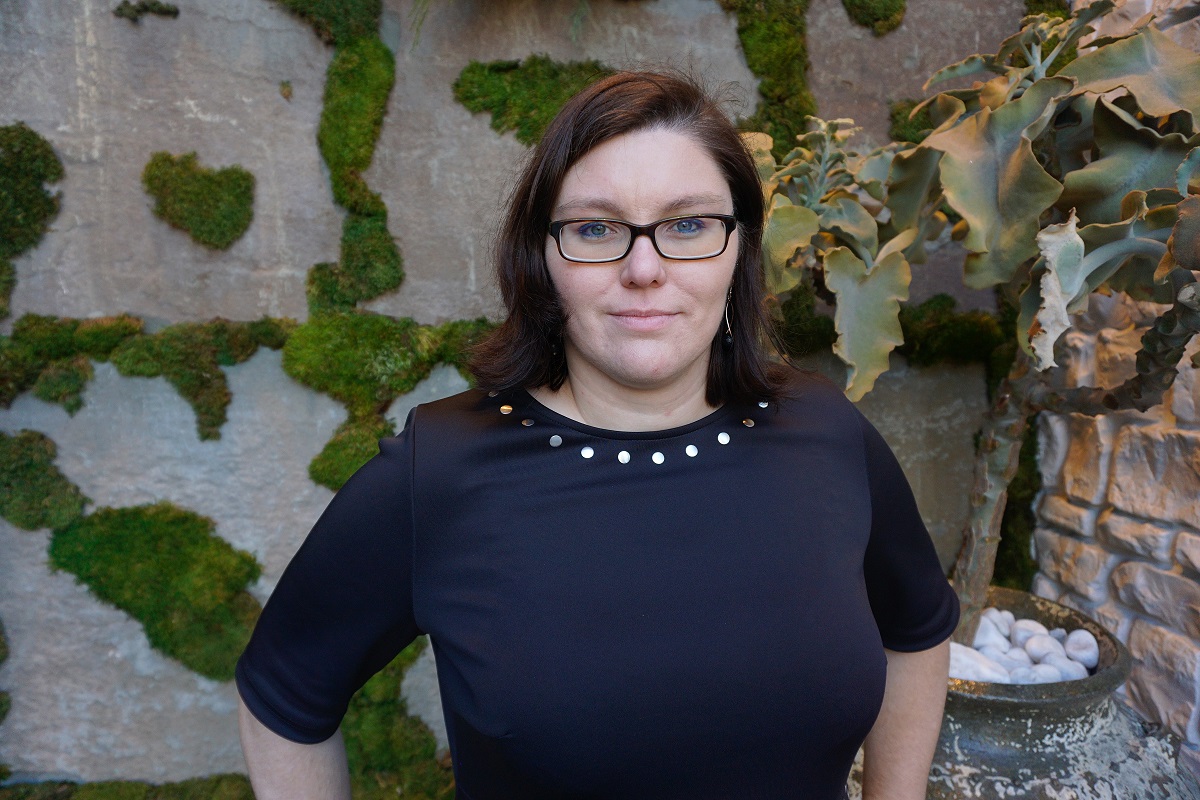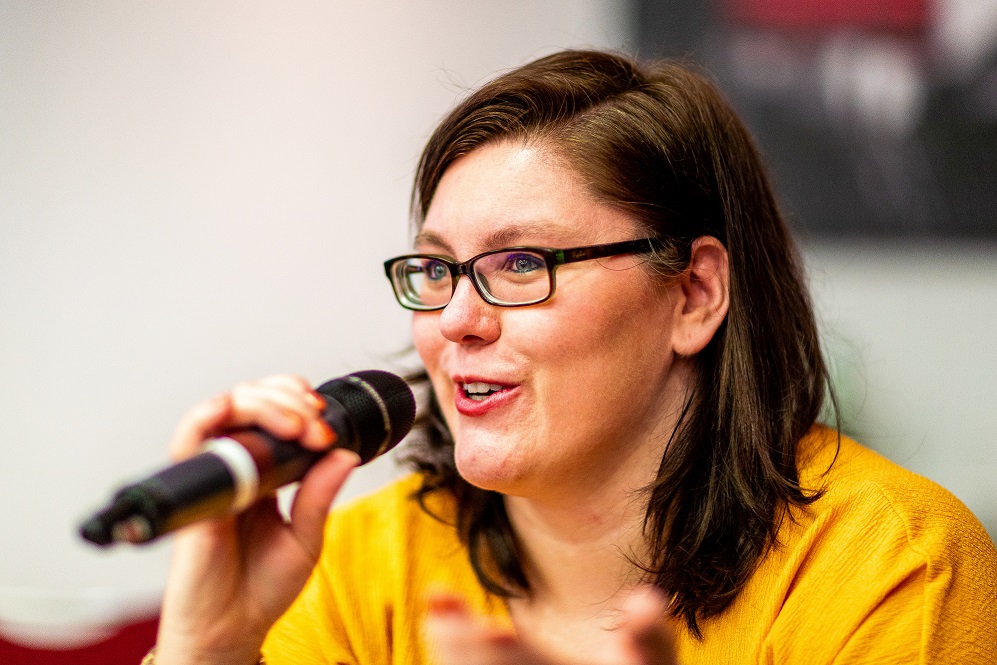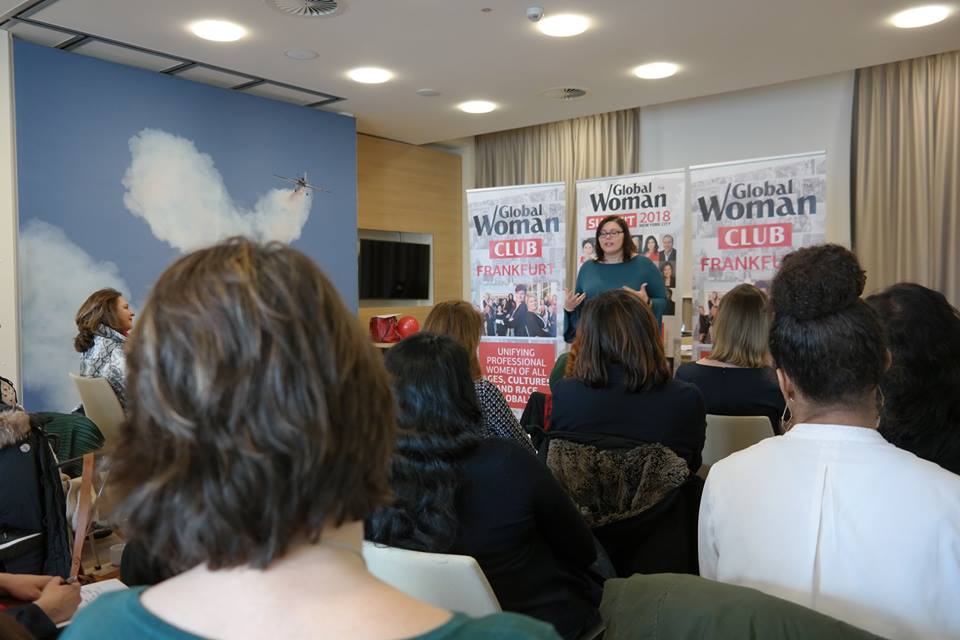
The business metrics that matter
Mona Tenjo – The business metrics that matter
By Fatima Gorezi
Mona Tenjo is a Business Growth Expert who consults businesses all across the world on how to generate sustainable business growth. She gained more than 15 years of hands-on experience as consultant and worked with some of the largest companies in the world. Throughout her career, she successfully trained and coached customers of more than 50 different nationalities in more than 16 countries.
Mona designs success strategies for her clients, crafts practicable action plans and helps your team to implement them. Thriving in business for her means being successful in what you do and having enough time to invest in your personal growth, in your family and in your business. However, managing such endeavors requires the ability to delegate, to optimise and to focus constantly.
Can you tell us more about your professional background?
[rml_read_more]
I have started my professional career at age 18 as an apprentice, learning the profession of an industrial clerk from scratch: reception service, accounting, cash register, order management, client service – everything that needed to get done. I worked there for several years before taking the step to attend university to study International Business. After working about a year in a lobbying department in Brussels and taking a semester abroad in Madrid, I started working as a business consultant for an IT company that produced strategic purchasing software. I worked for 5 years with the largest companies in Germany, implementing projects, creating and selling solutions. I was head-hunted by a DAX30 company to implement purchasing solutions worldwide and train the respective employees. In parallel, I started using my knowledge as consultant to serve my own clients and build my company “RespectStrategy”.
What made you choose consulting as a career?
After apprenticeship and university studies, I knew that I wanted to work internationally, with different companies, in different projects. Consulting is the perfect field to satisfy this desire. It is a tough training with a very steep learning curve. You need to adapt very fast, serve demanding requests from varying clients parallel and you need to learn to work efficiently and goal-oriented. You get to see the insight of many different companies, see their processes, their problems and how they handle difficult situations. It’s a great on-the-job training that simply can’t be provided through academic studies.

What was the biggest challenge you faced as a woman in this predominately male industry?
Working as a consultant in an IT company that serves solutions for purchasers, often resulted in being the only woman in the room. However, due to my role as the solution designer, it was often up to me to decide how each solution will look like, if we would be able to provide it and how to find alternative ways to handle it. I’ve also been the one to align with internal experts on how to implement solutions and how to develop the product further so that market demands are met. These points made me the go-to-person. My biggest challenge was to not sell myself short. Women often tend to say: “no problem”, “but that is my job”. Often, clients were really happy working with me and openly thanked me. My biggest challenge was to accept the thanks without turning it down as “normal”. To stand in my power and accept that my expertise was in demand and highly appreciated. To understand that accepting praise and highlighting what your contribution is to your management, is not considered as “showing off” or “being arrogant”. Working with mostly male colleagues made me understand that for male colleagues it is normal to accept a praise and to say clearly what their value is – and my colleagues never saw me as a show-off, even when sometimes I felt like it.
What are the top 3 challenges you see for growing a business?
- I call it “Surprising Growth”: Especially smaller operations are usually not set up to handle sudden growth. They often hope for it and work towards it, but once it happens, the organization is overwhelmed, can’t handle the demand and loses most of the growth immediately, due to missing or weak supporting structures and processes.
- Lack of Resources: Growth is usually synonym with scaling, but to scale you need to supply the necessary resources and provide the infrastructure. While money usually can be obtained, the human component is way harder to satisfy as training is required and essential for successful growth. That often happens way too late as the necessary time is vastly underestimated.
- Weak Strategy: Strategy is the guiding path towards your goals. As a business or individual – you won’t reach your goals without a proper strategy. So, without a clear, aligned and understood strategy, reaching your goals is questionable and more of a gamble.
You talk about “Grow like bamboo” – what does that mean?
“Grow like bamboo” is our analogy of sustainable business growth. Bamboo is one of the fastest growing plants on earth, but when you plant it, you won’t see anything for some time. In this time, the bamboo is growing deep roots that stabilize the plant. Once the roots are solid, the bamboo is growing extremely fast, but very stable. If there is a big storm, bamboo will stand the wind. The same applies for businesses. Most wildly successful businesses have built a solid foundation before they became successful. But those businesses that shoot for very fast growth, usually failed to create the necessary fundament to sustain that growth and remain a success. After enjoying a short-lived success, they often fall back into insignificance or even bankruptcy.
What does RespectStrategy stand for?
RespectStrategy, to me, is not just a name, but a philosophy.
Respect is of uttermost value for me. I grew up practicing Judo, a Japanese form of Marshall Arts, that values respect on every level. Respect your trainer. Respect your mates. Respect your enemy. Even respect the gym! It is omnipresent. I also had to learn to deal with defeats and accept that it is all in your hands. You have to train, improve and work on yourself. If you’ve been better than your competition, you would have won. But if not, then you honor their efforts – and work harder on yourself. Respect is a value I often miss in business. I had clients yelling at colleagues, suppliers breaking their agreements, consultants lying to clients, etc. This is not respectful business behavior to me.
The second component, strategy, is the heart of every sustainable business growth. Yes, you can grow without a strategy, but the results won’t be sustainable in the long run. If you don’t plan your business growth strategically and track it regularly, your growth becomes a matter of luck – and luck is not reproducible. A strategy guides your path to achieving your goals and saves time, money and headaches.

Can you share some tips on what to look for when choosing a consultant?
It is often difficult for clients to choose the right consultant, because consultants are experts in their field, and clients usually aren’t. Therefore, it is difficult for a client to say whether a consultant really knows what (s)he is talking about. However, every good consultant knows how to solve problems. I recommend testing with a smaller problem first. A good consultant will come up with more than one solution and will also recommend the best option for your case. A great consultant will also dig deep to understand the complexity and context of your unique situation. If a consultant doesn’t ask a single question but provides a solution, that’s a no-go signal!
As you need be able to work well with a consultant, the personal chemistry is relevant as well. You’ll work closely with a consultant – if you can’t stand another, the collaboration won’t be successful. But watch out for the ones that only just speak after your mouth. They can cause more harm than good. Further, you want to be clear regarding communication style, dispute resolution and how to work together.
How are you working differently than other consultants?
Due to our extremely broad background, we look at each problem from a holistic point of view. In business, many things are interlinked and can’t be assessed by themselves separately. We look at the entire value chain to identify where the real problem is located. Because often the obvious problem is not the one that causes the issues – it is often just a side effect of another problem. Furthermore, our solutions are 100% customized to your needs. There is no “one-size-fits all” approach and we know that. Additionally, we follow a hands-on and practical approach – theory is nice, but we believe in implementing measures that are sustainable and work in the real world. Finally, we operate transparent and open with our clients. We speak your language and don’t waste your time with the typical consulting fluff.
How do you feel about attending the new experience at ‘Global Woman Summit 2019’?
I am very excited being a panel speaker at the Global Woman Summit! It is going to be great to meet people from all over the world and I am really looking forward to this great event!





